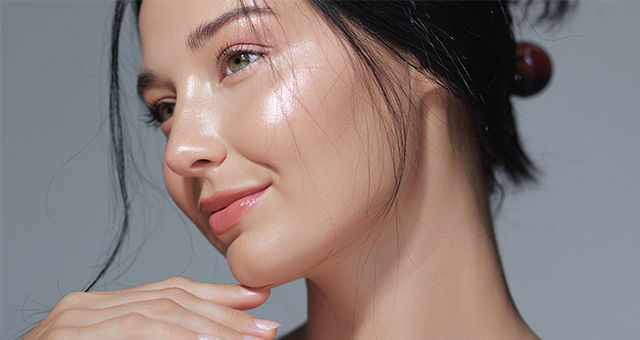Why Skin Whitening Remains One of the Most Popular Treatments Worldwide?
In recent years, aesthetic procedures have gained immense popularity, but few treatments have achieved the same global demand as skin whitening. Across Asia, Africa, the Middle East, and even parts of the West, people seek ways to achieve a brighter, more even skin tone. The reasons vary from cultural perceptions of beauty to addressing pigmentation issues caused by sun exposure, age, or hormonal changes. Among these trends, Skin Whitening in Islamabad is particularly sought-after because individuals in the region often face challenges like harsh sun rays and environmental pollution, which contribute to dullness and uneven skin tone.
Global Popularity of Skin Whitening:
Skin whitening is not limited to one region; it has grown into a worldwide phenomenon. Countries like South Korea and Japan emphasize flawless, porcelain-like skin as a symbol of youth and elegance. Similarly, in South Asia and the Middle East, lighter and even-toned skin is often associated with confidence and attractiveness. Western countries have also seen a rise in skin whitening treatments, not only for beauty but also for correcting skin conditions such as hyperpigmentation, melasma, and sun damage. This global appeal shows that the demand is not just cultural but also practical, catering to people’s desires to look fresh, youthful, and radiant.

Factors Driving the Demand:
Several factors contribute to the enduring demand for skin whitening treatments. Cultural influence plays a major role, where lighter skin has historically been connected with higher social status and attractiveness. Media and fashion industries also reinforce this by promoting models and celebrities with fair and even-toned skin. In addition, urbanization and environmental pollution lead to more pigmentation issues, making whitening treatments a practical solution. Another reason is the psychological impact—clearer and brighter skin enhances self-esteem and boosts social confidence, which further explains the popularity.
Common Skin Whitening Methods:
Skin whitening procedures come in different forms, depending on personal preference and skin type. Some of the most widely used methods include:
Topical creams and serums formulated with active ingredients like vitamin C, retinoids, or kojic acid.
Professional treatments such as chemical peels that exfoliate and brighten the skin.
Laser therapies designed to target deep pigmentation and promote even skin tone.
Injectable solutions that focus on rejuvenating dull skin and reducing pigmentation.
Each method has its own advantages, and the choice usually depends on the desired results and the severity of pigmentation issues.
Table: Comparison of Popular Skin Whitening Methods
| Method | How It Works | Suitable For | Results Timeline |
|---|---|---|---|
| Topical Creams/Serums | Lightens pigmentation gradually | Mild discoloration | Weeks to months |
| Chemical Peels | Removes damaged outer skin layers | Uneven skin tone, dullness | 2–4 sessions |
| Laser Therapy | Targets deeper melanin deposits | Stubborn pigmentation | Few sessions |
| Injectable Treatments | Improves skin brightness and glow | Overall whitening & radiance | Immediate to short-term |
Psychological and Social Impact:
One of the strongest reasons for skin whitening’s popularity is its impact on self-confidence. People often feel more comfortable in social settings when their skin appears clear and bright. In professional environments, too, a polished appearance can create a lasting impression. The global beauty industry has tapped into these psychological aspects, making whitening treatments accessible to almost every age group.
Safe Practices and Considerations:
While skin whitening is popular, it is important to highlight safety. Many over-the-counter whitening creams may contain harmful ingredients such as mercury or high concentrations of steroids, which can damage the skin in the long run. This is why professional guidance is crucial. Dermatologists recommend scientifically tested treatments that not only whiten but also improve overall skin health. Hydration, sun protection, and proper skincare routines must complement any whitening procedure for long-lasting results.
Why Islamabad is a Growing Hub for Skin Whitening:
In Islamabad, the demand for whitening treatments has significantly increased over the past decade. The city’s residents often deal with extreme weather conditions, dust, and pollution, all of which contribute to uneven skin tone. This growing awareness of skincare has led to a surge in advanced skin whitening options. Many people in Islamabad now prefer professional treatments rather than relying solely on home remedies or temporary products.
Future of Skin Whitening:
Looking ahead, skin whitening will continue to be one of the most requested aesthetic treatments. However, the industry is shifting toward safer and more sustainable solutions. Natural ingredients, non-invasive technologies, and personalized skincare plans are expected to dominate the future. The trend is moving away from simply achieving lighter skin to focusing on radiant, healthy, and naturally glowing complexions.
Conclusion:
Skin whitening has grown from being a cultural preference to becoming a global beauty standard. Its popularity stems from a combination of tradition, lifestyle, media influence, and practical solutions for pigmentation concerns. Whether it is through creams, chemical peels, laser therapies, or advanced treatments, the demand continues to rise. In regions like Islamabad, environmental and lifestyle factors make Skin Whitening in Islamabad a highly preferred option. As long as it is done safely and professionally, skin whitening remains one of the most reliable ways to achieve clear, glowing, and confident skin worldwide.